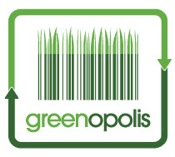The Real Story About Methane Power From Cows!
On April Fool’s we had a lot of fun with our DIY Methane Lamp From a Live Cow story. But what made it funny is that it really is a plausable project.
The Real Story About Methane Power From Cows!
Not that you would bring a cow into your lving room with a Coleman lantern piped up its butt. But cows make methane and methane can provide heat, light and energy, while keeping climate change in check. A story on Inhabitat via Reuters showed the cow above capturing its own methane for a study on the impact of methane in the atmosphere.
I was on a simple farm in Costa Rica a few years back that showed me a true picture of sustainbility. The farmer, Don Juan (I swear I’m not making this up), grew sugar cane and vegetables, and kept a couple of cows. I worked with him on the farm as we pressed the juice from the sugar cane to make sugar (and the wildest moonshine I’ve ever had- but that’s another story). We also harvested yucca and other crops. The veggies went to the kitchen to be cooked, the parts we couldn’t eat went to the cow as feed along with the crushed sugar cane. The cow happily munched the crop waste, and give milk and poop in return. The milk went to the kitchen to make cheese, butter and yogurt. The poop went into a methane digester- a big sausage shaped bag that captured the methane produced from the anerobic breakdown of the manure. The methane was piped to the kitchen to cook the veggies and dairy, and the solids that were left went onto the fields as rich manure, growing the next crop of yucca and cane. A simple and complete cycle.
The same methane was used to light gaslamps in our cabins, and some of it was used to generate electricity on the farm for other tasks.
Here’s a great illustration on how it all works from Cow Power:
Cow makes poop, poop and bacteria make methane, methane drives generator, generator makes electricity, electricity proscesses the dry waste remaining into bedding for animlmals and manure for fields, fields grow grass, grass feeds cows, and we’re back to square one.
Using the methane that cows make is a good idea- becaouse methane is 22 times more potent a greenhouse gas than CO2, and burning it reduces that impact. Here are some Pros and Cons of methane generator systems from Small Farm and Permaculture Living:
Advantages
-
Makes good use of organic wastes. You can obtain fuel from sewage sludge and animal slurries first, and prevent runoff and methane emissions at the same time – and you still get fertilizer at the end of the process.
-
Is a clean, easily controlled source of renewable energy.
-
Uses up methane, a powerful greenhouse gas.
-
Reduces pathogen (disease agent) levels in the waste.
-
Residue provides valuable organic fertilizer.
-
Simple to build and operate.
-
Low maintenance requirements.
-
Can be efficiently used to run cooking, heating, gas lighting, absorption refrigerators and gas powered engines.
-
No smell (unless there’s a leak, which you’d want to know about and fix immediately anyway!).
Disadvantages
-
Most practical to be generated and used at the source of the waste. This is because the energy needed to compress the gas for transport, or convert it into electricity is excessive, reducing the efficiency of biogas energy production.
-
For safety, basic precautions for flammable gas must be adhered to.
So there you go. As I sit back and edit this blog over a plate of baked beans, I’m reminded once again how we can easily generate the energy we need to power our lives by working with nature to conserve the planet! To see videos of how the methane process is completed, or to comment on this blog, visit the original post.
Greenopolis.com is dedicated to our users. We focus our attention on changing the world through recycling, waste-to-energy and conservation. We reward our users for their sustainable behaviors on our website, through our Greenopolis Tracking Stations and with curbside recycling programs.
GREENOP5923

